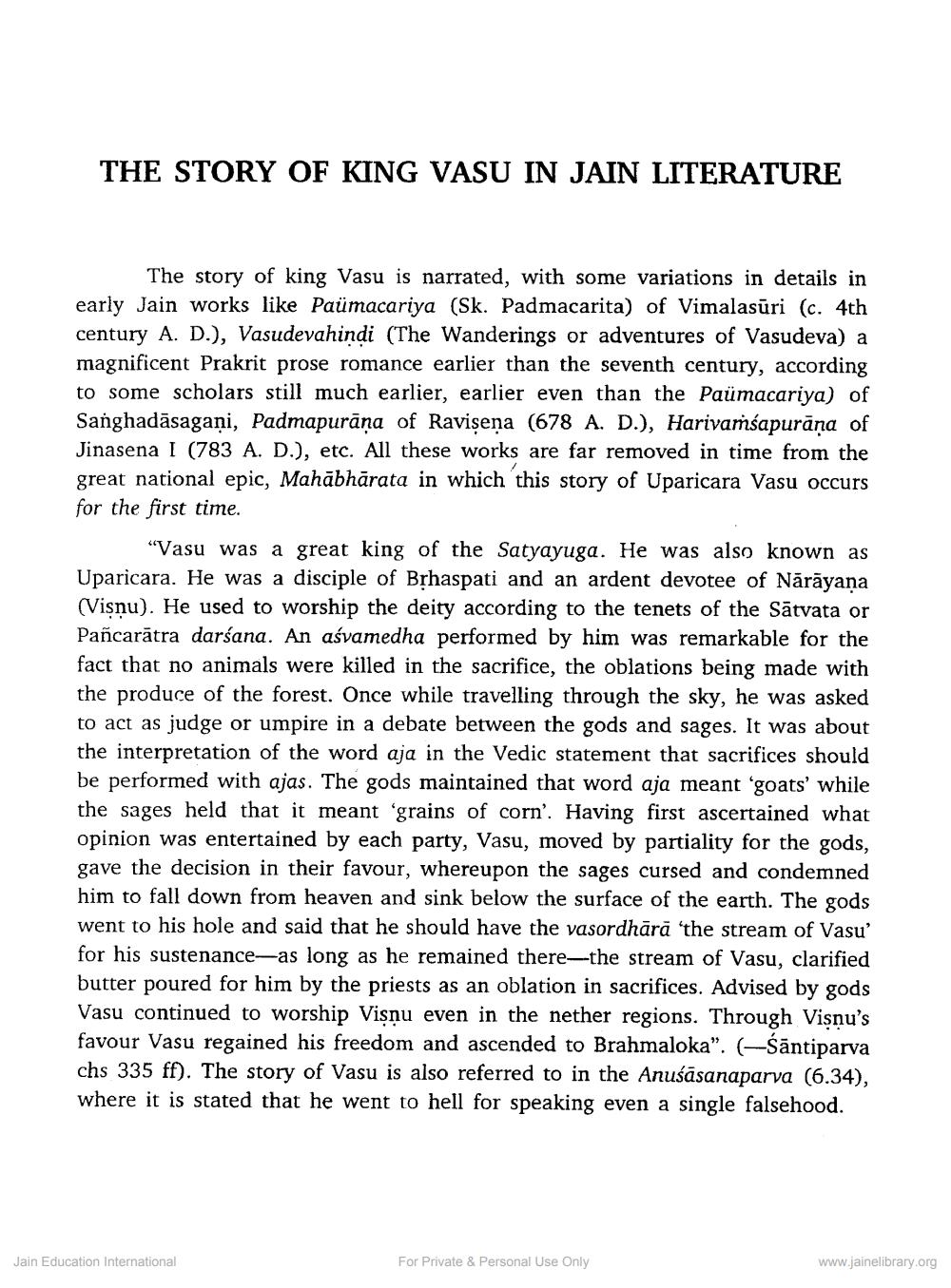________________ THE STORY OF KING VASU IN JAIN LITERATURE The story of king Vasu is narrated, with some variations in details in early Jain works like Paumacariya (Sk. Padmacarita) of Vimalasuri (c. 4th century A. D.), Vasudevahindi (The Wanderings or adventures of Vasudeva) a magnificent Prakrit prose romance earlier than the seventh century, according to some scholars still much earlier, earlier even than the Paumacariya) of Sanghadasagani, Padmapurana of Ravisena (678 A. D.), Harivamsapurana of Jinasena I (783 A. D.), etc. All these works are far removed in time from the great national epic, Mahabharata in which this story of Uparicara Vasu occurs for the first time. "Vasu was a great king of the Satyayuga. He was also known as Uparicara. He was a disciple of Brhaspati and an ardent devotee of Narayana (Visnu). He used to worship the deity according to the tenets of the Satvata or Pancaratra darsana. An asvamedha performed by him was remarkable for the fact that no animals were killed in the sacrifice, the oblations being made with the produce of the forest. Once while travelling through the sky, he was asked to act as judge or umpire in a debate between the gods and sages. It was about the interpretation of the word aja in the Vedic statement that sacrifices should be performed with ajas. The gods maintained that word aja meant 'goats' while the sages held that it meant 'grains of corn'. Having first ascertained what opinion was entertained by each party, Vasu, moved by partiality for the gods, gave the decision in their favour, whereupon the sages cursed and condemned him to fall down from heaven and sink below the surface of the earth. The gods went to his hole and said that he should have the vasordhara 'the stream of Vasu' for his sustenance--as long as he remained there--the stream of Vasu, clarified butter poured for him by the priests as an oblation in sacrifices. Advised by gods Vasu continued to worship Visnu even in the nether regions. Through Visnu's favour Vasu regained his freedom and ascended to Brahmaloka". (Santiparva chs 335 ff). The story of Vasu is also referred to in the Anusasanaparva (6.34), where it is stated that he went to hell for speaking even a single falsehood. Jain Education International For Private & Personal Use Only www.jainelibrary.org




